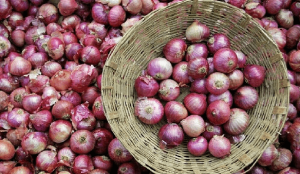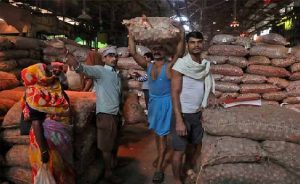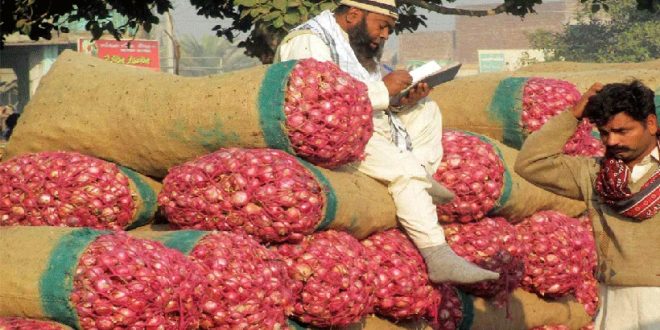24-03-2024
Bureau Report + Agencies
NEW DELHI/ MUMBAI: India has extended its ban on onion exports indefinitely, a surprise move that comes ahead of a general election and is set to exacerbate high prices in some overseas markets.
Imposed by India, the world’s biggest exporter of the vegetable in December, the ban was due to expire on March 31. Traders had anticipated it would be lifted as local prices have more than halved since the export restrictions were implemented and this season’s crop is yielding fresh supplies.
 However, the government issued an order late on Friday that the ban will remain in place until further notice.
However, the government issued an order late on Friday that the ban will remain in place until further notice.
“The extension is surprising and completely unnecessary, considering the falling prices with rising supplies from the new season crop,” said an executive at a Mumbai-based export firm, who declined to be identified.
Onion prices in some wholesale markets in Maharashtra, the biggest onion-producing state, have fallen to 1,200 rupees ($14) per 100 kg from 4,500 rupees in December, the executive said.
Prime Minister Narendra Modi is seeking a record-equalling third straight term in upcoming elections that will be held over almost seven weeks from April 19.
Countries such as Bangladesh, Malaysia, Nepal and the United Arab Emirates rely on imports from India to fill domestic gaps in onion supply and many of those nations have struggled with high prices since the ban.
“India’s move is allowing rival exporters to quote much higher prices since buyers have no choice,” said another executive at an export company based in Mumbai.
Traders estimate that India, which has shorter shipment times than rivals such as China or Egypt for many markets, accounts for more than half of all onion imports by Asian countries.
 India exported a record 2.5 million metric tons of onions in the financial year that ended on March 31, 2023.
India exported a record 2.5 million metric tons of onions in the financial year that ended on March 31, 2023.
Wholesale onion prices averaged around Rs.18 per kilogram on Saturday, March 23, with local prices ranging between Rs.7 and Rs.30 per kilogram in different parts of the country.
Meanwhile, food inflation in the country worsened to 8.66 per cent in February from 8.30 per cent the previous month, as the overall consumer inflation reading stood little changed sequentially at 5.09 per cent, according to official data released last week.
The food basket accounts for nearly half of the overall Consumer Price Index (CPI), which tracks changes in the prices of a set of goods and services.
Food inflation refers to the rate of increase in prices of food items over a given period of time. It is a key economic indicator that affects consumers, producers, and policymakers alike.
Food inflation can be influenced by various factors such as weather conditions, supply chain disruptions, government policies, and global market trends.
Policymakers closely monitor food inflation as part of their efforts to maintain economic stability. They may implement measures such as subsidies, price controls, or trade policies to mitigate the impact of food inflation on consumers and businesses.
Prime Minister Narendra Modi is seeking a third straight term in upcoming 2024 Lok Sabha elections that will be held from April 19. Bangladesh, Malaysia, Nepal and the UAE are among the countries that rely on imports from India to fill their respective domestic gaps in onion supply.
 Pressmediaofindia
Pressmediaofindia




